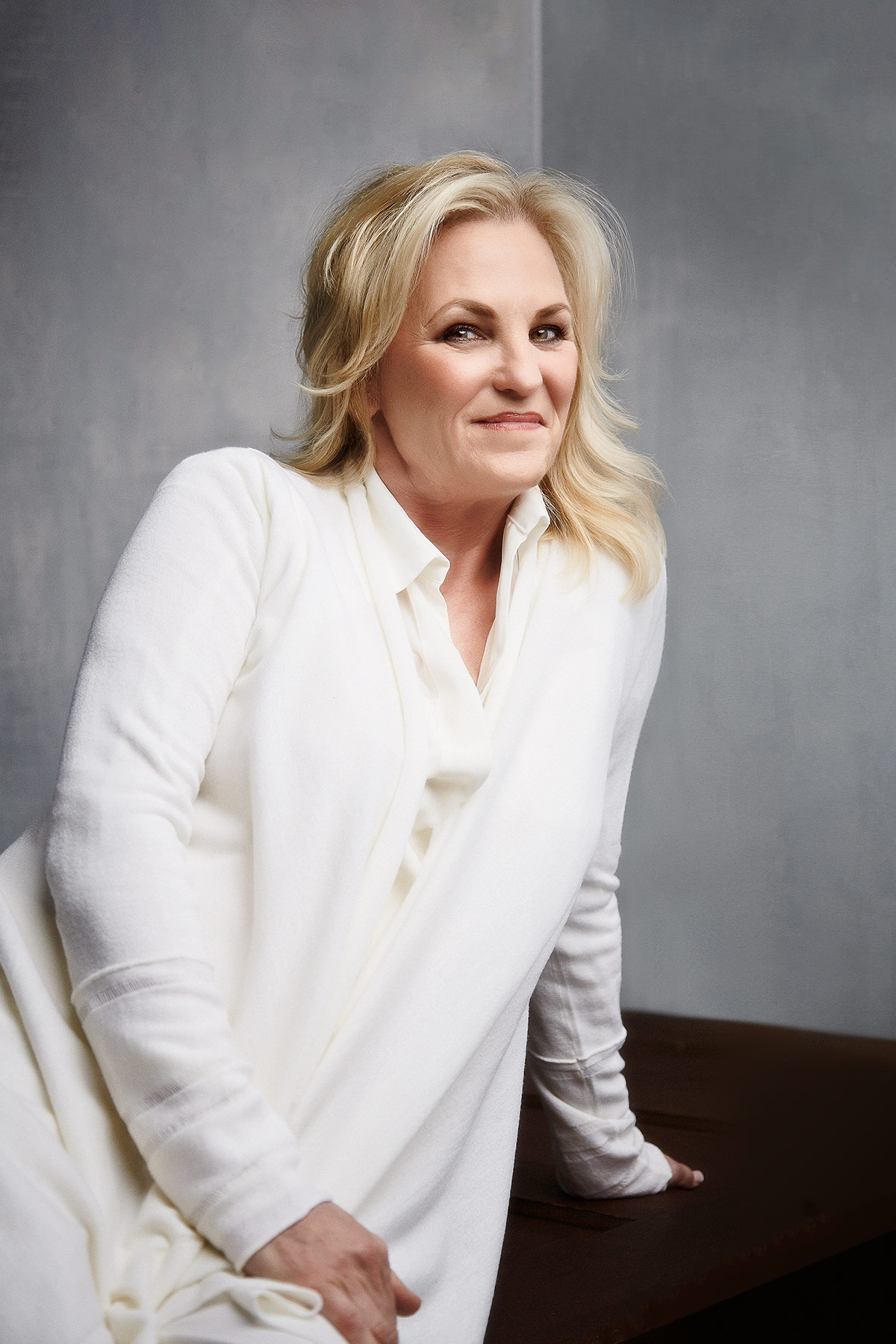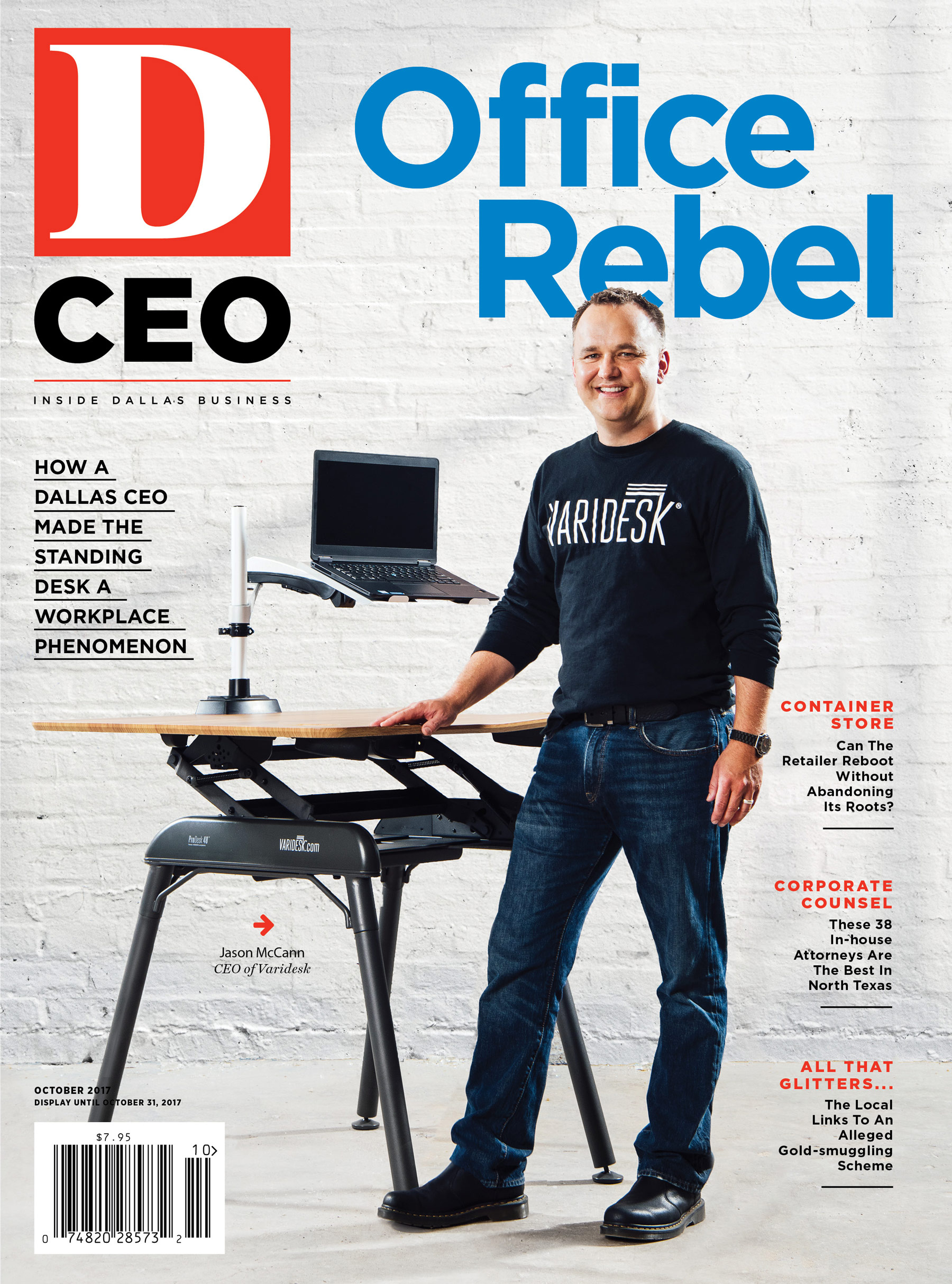Melissa Reiff, the CEO of The Container Store, wants to sell me some stuff. Airtight bins, for sure. Maybe some tiered shelving. She’s offered to make an appointment for me to see a storage expert at The Container Store nearest to me so the expert can figure out the details. “You can’t buy what you need on Amazon,” says the 62-year-old executive, who took over as CEO from company founder Kip Tindell last year. “That will take forever.”
She’s right. I’ve already spent fruitless hours on Amazon.com looking for help in my weeks-long war with the Indian mealmoth, aka Plodia interpunctella, aka the flour moth, aka the pantry moth. The invaders came in a bag of cornmeal and before I’d noticed their presence, they reinforced their ranks through prodigious procreation, spreading to a couple of other poorly secured grain products in my kitchen.
Casualties have been high. Whether it was infested or not, I was forced to sacrifice nearly everything that wasn’t locked down in an airtight container. Something like $80 worth of food thrown away. Now, even with the moths on the run, my pantry sits sadly empty. I need to figure out a more secure storage solution in case the moths come back. “That sounds awful,” Reiff, a 22-year veteran of The Container Store, tells me. “But we’ll help you find a solution. That’s exactly the kind of thing we can do that no one else can.”

She’s probably right about that. Lots of places sell plastic bins these days. Bed Bath & Beyond. Target. Amazon. Wal-Mart. Ikea. But The Container Store—which turned Tindell’s initial $35,000 investment in a single Dallas store in 1978 into 88 stores and more than $800 million in revenue today—offers plastic bins and employees who are highly paid (some make $50,000 a year) and extensively trained (receiving hundreds of hours more training than typical retail workers). Those employees will outfit you with bins, sure. But also shelves made by Elfa, a Swedish company The Container Store owns, and maybe hooks and some baskets and some bags and, hey, perhaps even a $10,000 wood closet from the company’s new custom closets line. The Container Store’s expert helpers offering tailored solutions make it stand nearly alone in the marketplace—something like an Apple Store for stuff that you put other stuff in.
That’s the good news for Reiff. The bad news: The marketplace is tough. Retailers of all kinds are struggling, including The Container Store. The company has seen a steep cascade in its stock price since its initial public offering debut on the New York Stock Exchange in 2013. It hit a high of $45 a share that year. Today, it trades at around $4.50.
Investors are fretting about everything, from the pace of the company’s growth to the departure of conscious-capitalist founder Tindell to whether the decision to go public and succumb to the demands of Wall Street is crushing The Container Store’s legendary, employee-friendly culture.
Reiff says she wants to keep The Container Store’s culture intact, and keep the company at the top of the “best places to work” rankings. But she’s also trying to redefine how The Container Store operates, how it competes, and how it will grow in a future that seems to be skewing toward digital commerce. So, she’s making changes. A lot of changes. They include laying off people for the first time in the company’s history. Reiff’s task is to do for The Container Store what she wants The Container Store to do for my pantry: Get it reorganized.
Getting Their Bells Rung
On October 31, 2013, when The Container Store went public after 35 years as a private company, executives crammed into the balcony of the New York Stock Exchange to ring the opening bell for that day’s trading. Tindell passed on the job. Instead, he asked Reiff to do it. “My dad was a stockbroker,” says Reiff, who speaks with the enthusiasm of an infomercial host. “I worked for him during the summers. So it was a very gracious thing for Kip to do, and it was a very exciting moment.”
Well, at least Reiff was excited. After she animatedly depressed the button that rings the NYSE trading bell, she smiled and let out a “whoop” and hugged Tindell’s wife, Sharon, the company’s president and longtime chief merchant. Kip Tindell, though, never showed his teeth through a tight smile. Tindell, who declined to comment for this story, told D in 2014 that, “IPOs are kind of—they’re almost like crony capitalism. They’re not conscious capitalism.” Still, he’d okayed The Container Store’s plans to go public once he found a way to offer a broad buy-in for multiple employees. Some 20 percent of the employees at the time ended up with shares in the IPO, at the initial asking price of $18 per share. When the share price skyrocketed to $35 before the first day’s trading ended, some workers in the Coppell distribution center had made $40,000.
“That was a mixed feeling,” Reiff tells me from her office at the company’s Coppell headquarters. “You don’t really want your stock to pop that much. But on the other hand, it was exciting to see, and it was good for employees who held so many shares.”
The excitement faded quickly. Before the year was out, The Container Store, which hadn’t made a profit in three years, missed its quarterly earnings projections. Some market watchers began questioning whether Wall Street’s ways were already corrupting The Container Store culture.
That’s a question Reiff has gotten repeatedly ever since. “Being a public company is different,” she says. “Anybody who tells you it isn’t is lying. But people said, ‘Oh, they went public. Now the culture is changing.’ ‘Oh, they went public, now everything is going to go to hell in a handbasket.’ It wasn’t.”
In fact, even with the IPO, one key thing has not changed at The Container Store: It is still controlled by Leonard Green, a Los Angeles private equity firm. Leonard Green bought controlling interest in The Container Store in 2007, when it was private, and still owns 57 percent of the company, controlling three of the 11 board seats. “I speak with Leonard Green a lot,” Reiff says.
With one investor in control and with the weak results The Container Store had been posting leading up to its IPO—three straight years of losses—why did investors go bonkers for the stock in 2013? The answer: Growth. There were only 62 Container Store locations when it filed an S-1 form with the Securities and Exchange Commission that gave notice of its intent to go public. That store count is tiny for a national retailer. Bed Bath & Beyond, for instance, operates 1,500 stores.
But The Container Store’s executives seemed to believe they had the potential to expand exponentially. In its SEC filing, the company said research suggested it could grow to at least 300 stores in new and existing markets. No timetable for that growth was given. But at the pace the company has set since going public, it will take 42 years before the ribbon is cut—with a lightsaber, one assumes—on that 300th location.
Reiff isn’t making any predictions about how many stores The Container Store will have in the near term, much less what it will have by the end of 2059. Instead, she’s focused on steady growth, opening four new stores this year, and on a plan—they call it an “optimization plan”—that could remake many of the company’s stores, changing the way it displays and sells all of its stuff that holds other stuff.
Getting Their MBA
Melissa Reiff has been working with or for The Container Store in some form since 1982. That year, the Independence, Mo., native, who graduated from Southern Methodist University with a political science degree in 1976, went to work at the Dallas Trade Mart for a manufacturer’s-representative company called Le Papillion. It repped stationary, tabletops, toiletries, and home goods, and one of Reiff’s customers was Kip and Sharon Tindell’s fledgling company.
A decade later, Reiff was working on a private line developed for The Container Store by bath-and-body company Crabtree & Evelyn, which had recruited Reiff to work at its Boston headquarters. Three years later, the Tindells brought her back to Dallas, hiring Reiff to be the first vice president in the company’s history. She was tasked with setting up a marketing and public relations department and overseeing employee training and, well, whatever else needed to be done.
By 2003, Reiff took on more work and an expanded title—executive vice president of stores and marketing. Three years later she became chief operating officer. “Usually when someone is promoted, they’re already doing the job you’ve just given them,” says Reiff, who each day reads four newspapers and powers through 600 email messages. “And I am just one of those people who sees opportunity and tries to step up. My dad had a huge influence on that, and my mom did, too. But the titles? Titles didn’t—and don’t—mean that much to us here.” Still, Reiff says the company is, in some ways, barely recognizable today compared to the one she joined 22 years ago. “The kind of growth we’ve had is like we started in elementary school, and now we have our MBA,” she says. “We’re bigger and more structured now. A lot bigger. We have 88 stores and 4,000 employees now.”

Even with all that growth, one thing hasn’t changed: The Container Store still operates by a set of what it calls Foundation Principles. “Those are not just some mission statement that you’ll find hanging on the back of a door in the breakroom,” Reiff says. “These are really principles that guide our decisions every day, and have since 1978.”
The principles include easy-to-grasp phrases like, “One great person equals three good people,” and, “The best selection, service, and price.” They also include vaguely weird abstractions, such as, “Man in the desert selling,” and “Air of excitement!”
In total there are seven foundation principles, most of which are credited to founder Tindell. But one came directly from Reiff several years ago. Principle No. 2: “Communication IS Leadership.” That’s explained like this on the company’s website: “Simply put, we want every single employee in our company to know absolutely everything.”
Just one small problem with that. Regulators expressly prohibit every single employee in a public company from knowing absolutely everything. As a for instance, let’s say a company that has gone almost four decades without laying anyone off is about to trim 2.5 percent of its workforce. A CEO would be forbidden to tell any employee who isn’t designated as an “insider” about that layoff until that CEO had officially released earnings to the SEC and to Wall Street.
That’s why, on May 23 of this year, Reiff found herself on a conference call telling analysts about her plan to cut 92 jobs—the company’s first-ever layoff—before she’d told most of her employees. “I’m not going to be cute with the words,” Reiff says. “You can call it restructuring, layoffs, position elimination, whatever you want to call it. What happened was that we’d changed the way we’ve been running our stores and we found 92 positions that we could eliminate due to our new efficiency. I had to make the decision to do that. I was afraid I was going to be called the hatchet lady. But I was very transparent with the organization.
“Some people, although not all, knew that really difficult decisions were coming,” Reiff continues. “And two days after we made that announcement, I did a coffee chat with the company. I told them that was the hardest thing I’d ever done. I hope we never have to do it again. I got emotional. Everybody in the audience did. They said they felt bad for their colleagues. But they also said it was the right thing to do. The overwhelming support was unbelievable.”
There was support on Wall Street, too, although it may have come for different reasons. On May 23, The Container Store announced that its quarterly earnings had beaten analysts’ expectations. It also outlined its “optimization plan.” Taken together with the layoffs, Wall Street cheered and sent the stock up 35 percent.
A new, new day
When you walk into The Container Store’s Dallas flagship location across from NorthPark Center later this year, the company’s CEO hopes you think, Wow! “I want you to see that clearly this is a Container Store,” Reiff says. “But, look, it has new fixtures, new flooring, new lighting, new technology.”
The flagship will be a test case for concepts that the company hopes it can roll out to other stores, both new and existing, across the country. That’s a key part of the optimization plan Reiff hopes will drive better short-term results and give The Container Store a long-term advantage over other brick-and-mortar competitors—and Amazon. Besides better managing inventory, Reiff is betting, the plan will bring more customers more frequently to the company’s stores and also make the items offered there more affordable. Taken together, Reiff thinks that all will save $20 million a year.
It’s one of many changes she’s made since taking over from Tindell last March. Reiff has also replaced the CEO of Elfa, the custom-shelving company based in Sweden that The Container Store purchased in 1999. And she’s recently okayed the rollout of a new TV ad campaign — the company’s first in several years.
“The last 12-13 months have been the hardest of my career,” Reiff says. “But I decided to challenge the entire company leadership team here. I said, this is a new, new day.” In fact, Reiff had a banner hung in the headquarters that reads, “New New Day.” “There’s nothing off the table,” she continues. “There are no sacred cows. We will continue to run our company based on our foundation principles. But we will adjust and adapt to what’s going on around us. We must. But that’s not in defiance of our culture. Our company has gone through a lot of change, but it’s not transformation. The culture is as strong as it ever was.”
As evidence, Reiff points to the company’s employee retention rate. Just 13 percent of full-time Container Store employees leave the company each year. And that’s at a time when, according to a 2016 survey from consultancy Korn Ferry, retail turnover rates are the highest they’ve been since the 2008 recession.
Reiff is confident that The Container Store will continue outperforming the competition in retention and in other areas, too. “If I was in apparel right now, or in a handful of other retailers’ situations, I would be very concerned,” Reiff says. “But … more than 50 percent of our products are proprietary. We created and dominate this category of storage and organization. The big, bad Amazon goes head-to-head with us on some items. And I’m certainly watching them like a hawk and making sure we’re competitive with them on pricing. But they can’t sell storage. They can’t design closets online. So we have so many differentiators that other retailers don’t.”
That may have helped The Container Store’s revenues continue on a steady upward climb since 2013. The company has gone from $634 million in revenue in ’13 to $819 million this past fiscal year. It’s also posted a profit every year since it went public, with $15 million in net income in fiscal 2016.
But other hard choices—a wage freeze and a freeze on the company’s 401(k) match—have helped keep The Container Store that far in the black. The wage freeze went into effect companywide in 2016 and was set to expire in September. “We want to be a conscious company, with conscious leadership that’s trying to always do the right thing,” she says. “Sometimes that means making difficult decisions. And, I’ve had to make some really tough ones. I’ve tried not to be a bull in a china shop about that. I’ve tried to be very gracious. But I am definitely pushing our organization. We just have to make progress on many fronts. We’ve got to move right now.”






